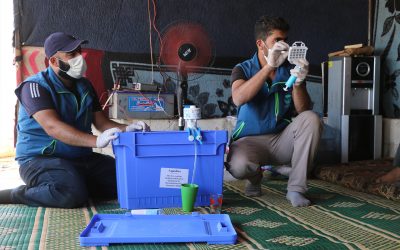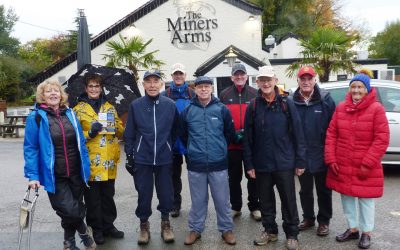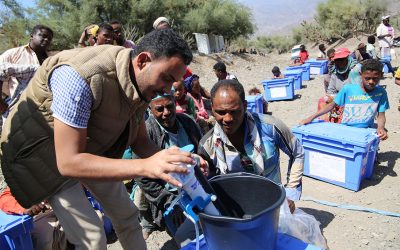Middleton Rotary Club’s succession of six Rotary Grants for rain catchment projects over a period of 7-8 years from 2008 have brought 810,000 litres of clean rain water to nearly 10,000 people living in rural communities in the semi-arid areas of Tharaka/Nithi County in Kenya.
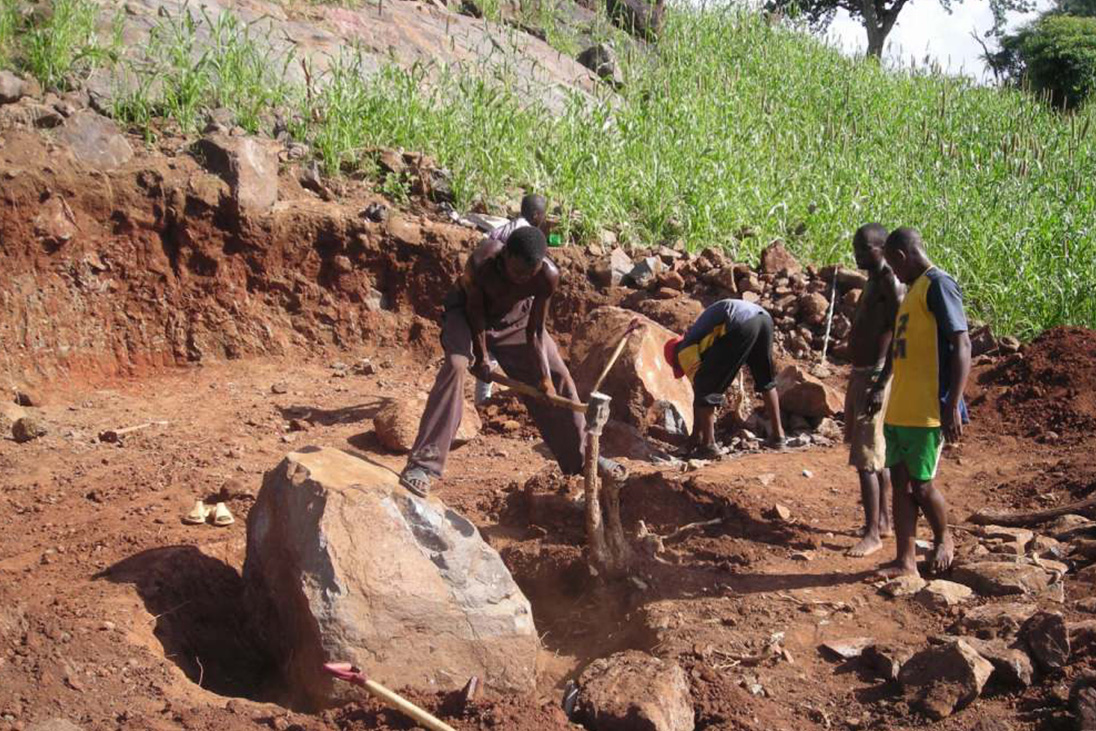

Men digging the well in order to reach the clean water below the surface.
They had already linked up with the Rotary Club of Meru in Kenya for a Matching Grant to build a bridge to link two communities together over a river which was deep and dangerously fast running, saving up to 50 lives a year. This was done by one of the Meru Rotarians, Julius Mungania who lives in Tharaka/Nithi County who contacted Middleton Rotary to request help with water projects for the extremely poor and neglected communities in Tharaka /Nithi County.
“The health of all families in the communities has risen dramatically…”
In addition to Middleton Rotary Club’s six projects, members of the Middleton Rotary Club came into contact with Rotarians Judy Zone from Salt Lake City, Utah (USA) as well as Ralph Ogden from Denver, Colorado (USA), both of whom helped raise the finances in their Districts to successfully apply for two more Rain Catchment Projects, which brought clean water to an additional 3,000 people.
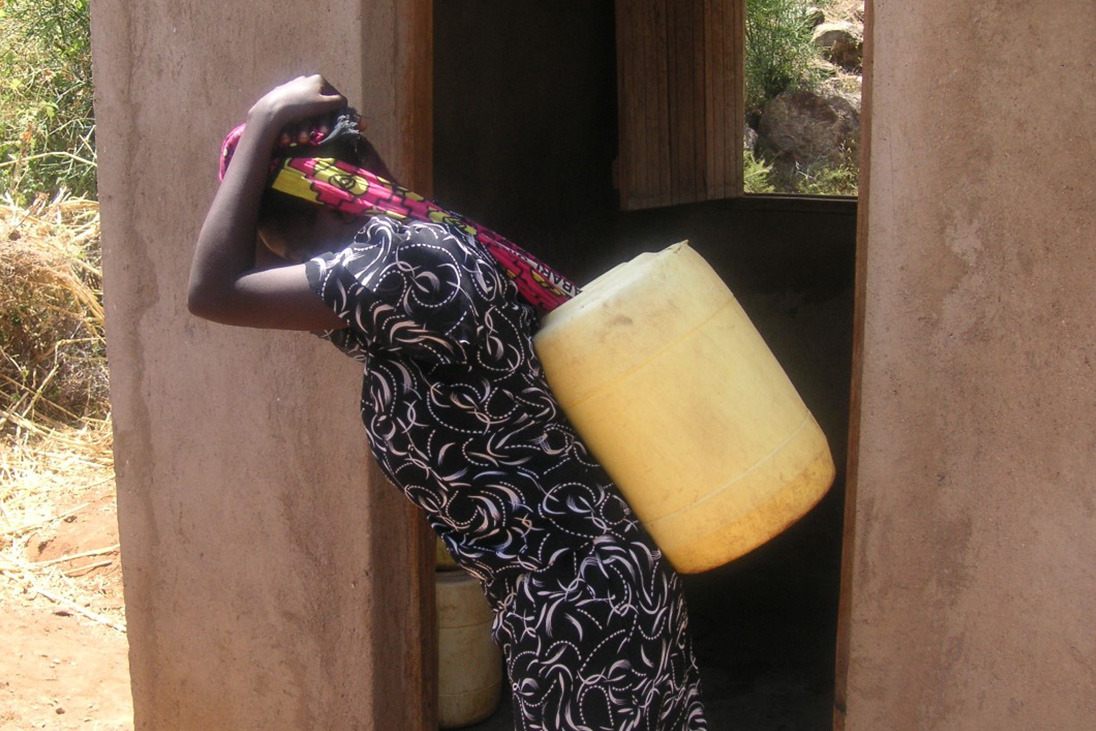

Image demonstrating how women had to carry twenty litres of water to where they needed to go.
To ensure the sustainability of the Rain Water Catchment projects, members of Middleton Rotary Club visited Tharaka/Nithi and co-operated with the Meru and Nkubu Rotarians to complete an in-depth Needs Assessment over a period of two years.
On completion of each project the elected committee received a comprehensive training programme which was organised locally and contained many aspects to meet local cultural needs, the fair distribution of water to each registered family, and to ensure the water would last until the next rains. Each family would be asked to make a small monthly contribution to build up a fund for future repairs to the simple constructions.
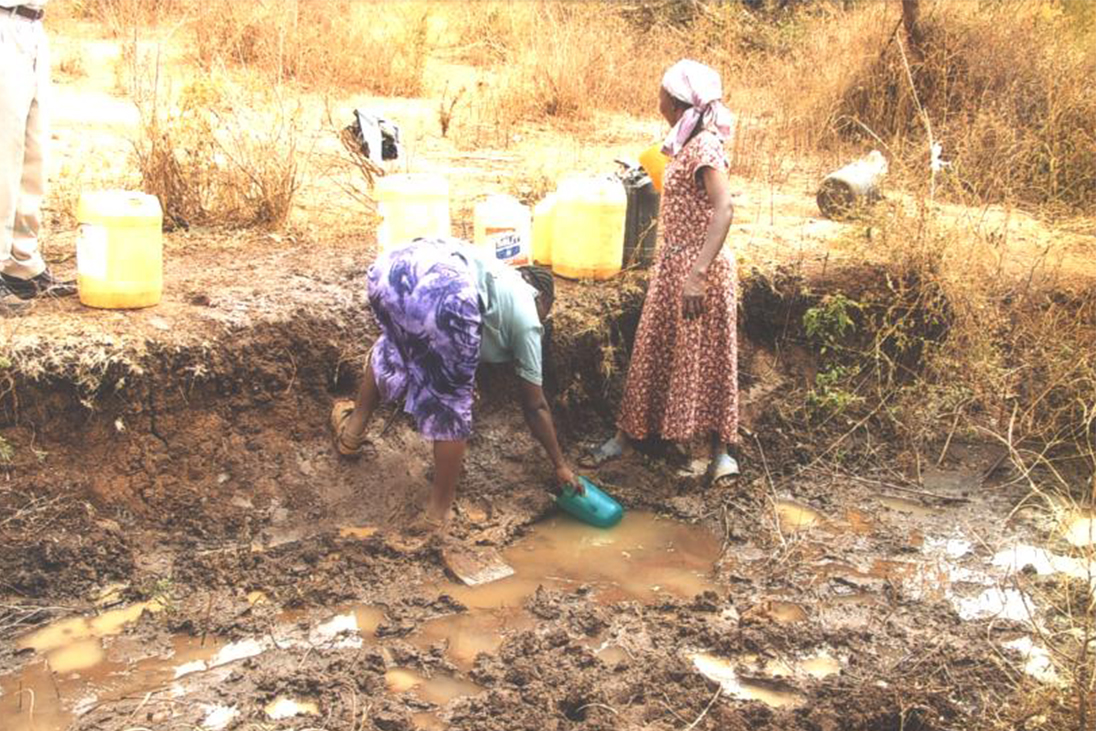

Two Women collecting Dirty Water before the Catchment Project- The women had to walk four hours to find this water.
John Brooker from Middleton Rotary said: “We have recently received a report from Julius with an update on the continually improving conditions of the eight communities in Tharaka/Nithi County. The rain water constructions are still in extremely good order and continue to provide all year round clean water for all eight communities.”
Julius said: “The health of all families in the communities has risen dramatically as they have easy access to clean water, educational standards have risen enormously because the children can attend school regularly and no longer have to spend their days searching for water in the dry seasons. Middleton Rotary Club’s interventions has attracted further projects from other Kenya Government Authorities and NGO’s who ‘have copied your ideas’.”
“Middleton Rotary Club’s interventions has attracted further projects from other Kenya Government Authorities”
The construction of these very valued water projects has motivated the communities in Mwerera to develop resources in their areas which include building their own Secondary School and health centre for the pupils and staff of the Primary and Secondary Schools as well as the rest of the community.
From one small request and the acceptance of that request Middleton Rotary Club hasn’t changed the world but invaluable contributions, have been instrumental in dramatically changing the lives of a few communities in a small rural area in Tharaka/Nithi, Kenya.








